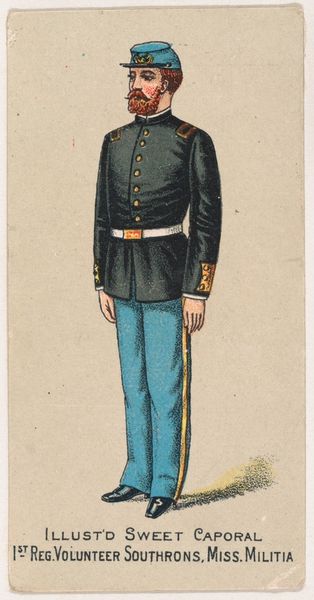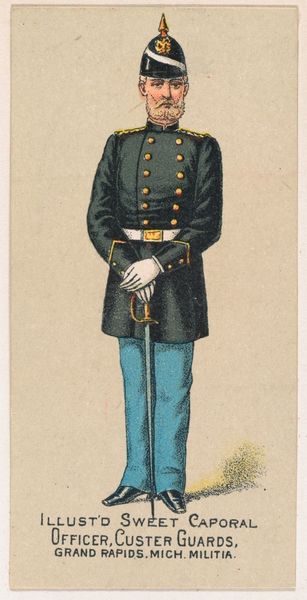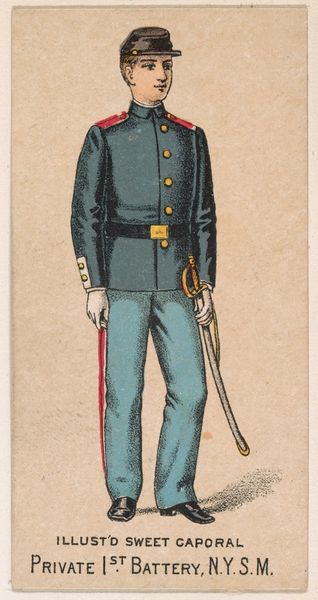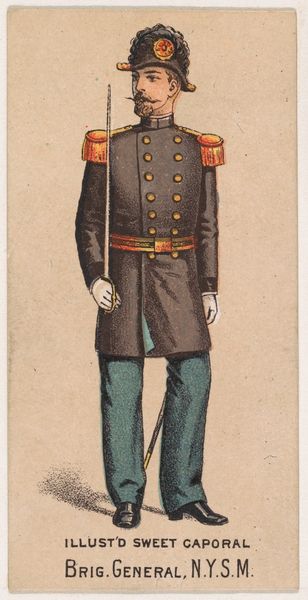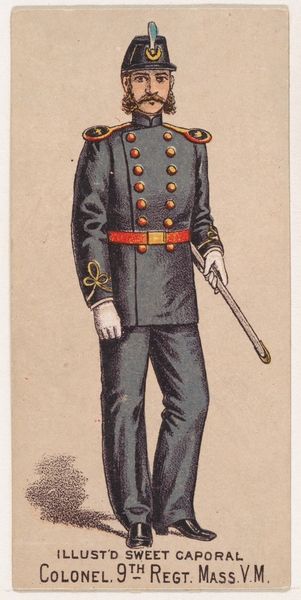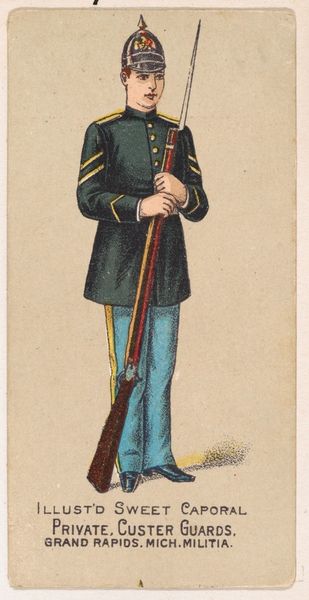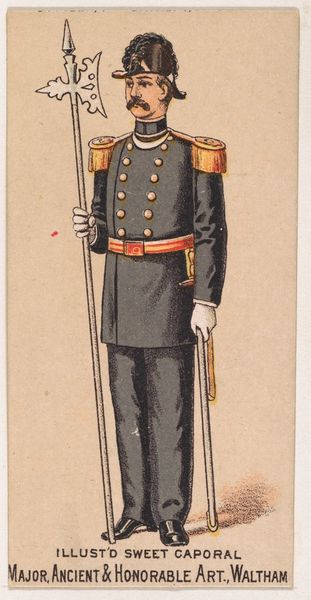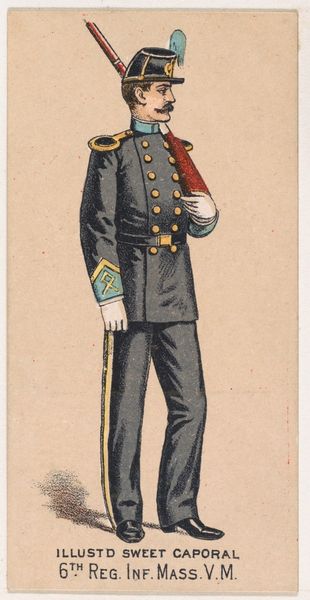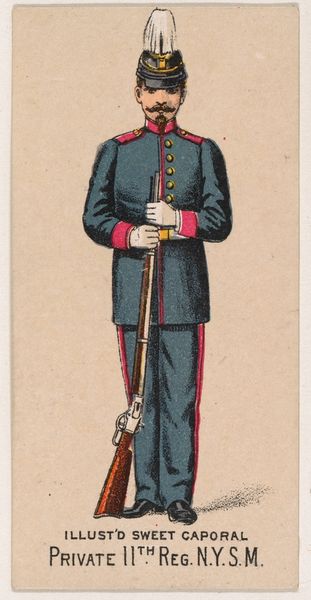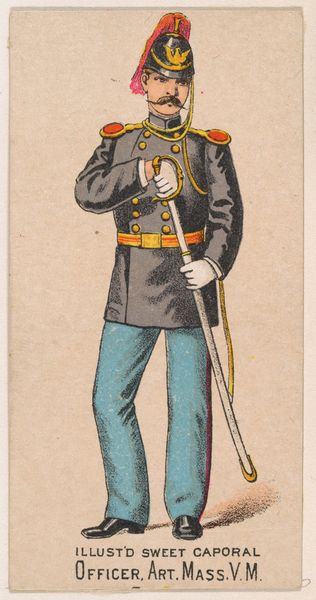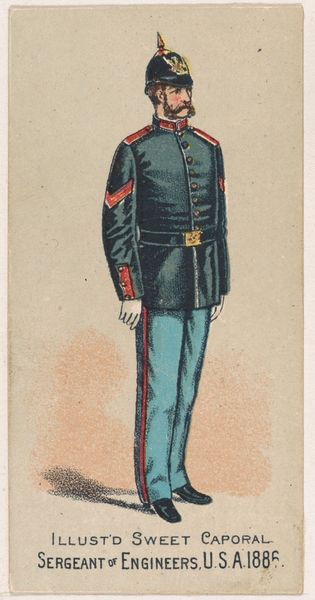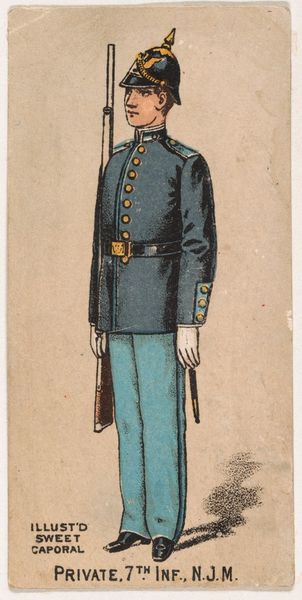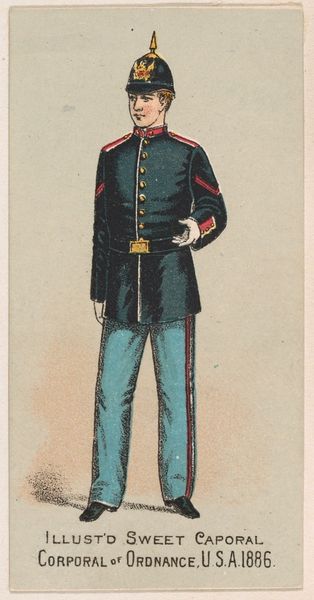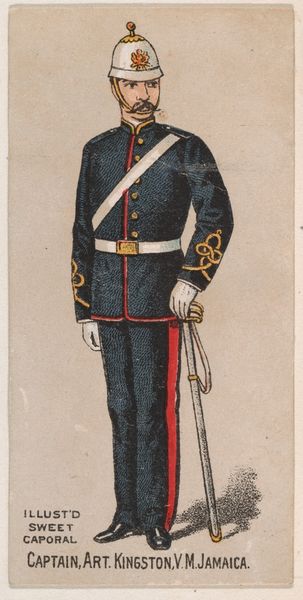
Co. F. (unattached), Cavalry, Massachusetts, V.M., from the Military Series (N224) issued by Kinney Tobacco Company to promote Sweet Caporal Cigarettes 1888
0:00
0:00
drawing, print
#
portrait
#
drawing
# print
#
caricature
#
caricature
Dimensions: Sheet: 2 3/4 × 1 1/2 in. (7 × 3.8 cm)
Copyright: Public Domain
Curator: This is “Co. F. (unattached), Cavalry, Massachusetts, V.M.” part of the Military Series, a print dating back to 1888 by Kinney Tobacco Company. What's your immediate take on it? Editor: Well, there’s a solemn kind of... dandyism to it. I mean, that moustache is quite something, perched above the stiff uniform. The color feels… reserved. Like he's reluctantly posing for a photograph while thinking about how quickly he can change. Curator: Interesting. We have here an advertising trade card that offers a glimpse into how military figures were presented—even idealized—to the late 19th-century American public. Sweet Caporal Cigarettes are heavily linked to representations of masculinity. We can understand its role in creating a cultural narrative around nationhood, and commodity culture. Editor: True, it does scream hyper-masculine ideals, but at the same time… this is oddly fragile, right? I can’t help but imagine him feeling like a fish out of water. It reminds me of family photos, these kinds of posed images hide everything going on. Curator: It does invite some thoughtful reflection. Consider the implications of this "unattached" designation too; it invites a re-evaluation of individual identity and institutional roles. His position suggests that ideas about the Civil War's impacts remain unsettled. How might we read this print as a reflection of lingering conflicts about patriotism? Editor: It definitely messes with a simplistic good-versus-evil narrative. Seeing it like this… He looks like a paper doll, almost, dressed up and ready to play the hero. There’s sadness beneath the surface. Curator: Indeed. Understanding such pieces through intersectional perspectives, where we acknowledge power dynamics relating to class, or social expectation, helps us move beyond simplistic historical accounts. We uncover nuances of experience. Editor: It leaves me thinking, too, about how the image, as well as the person represented in it, have aged and decayed. I think I will remember his mustache and haunted expression for a while!
Comments
No comments
Be the first to comment and join the conversation on the ultimate creative platform.
